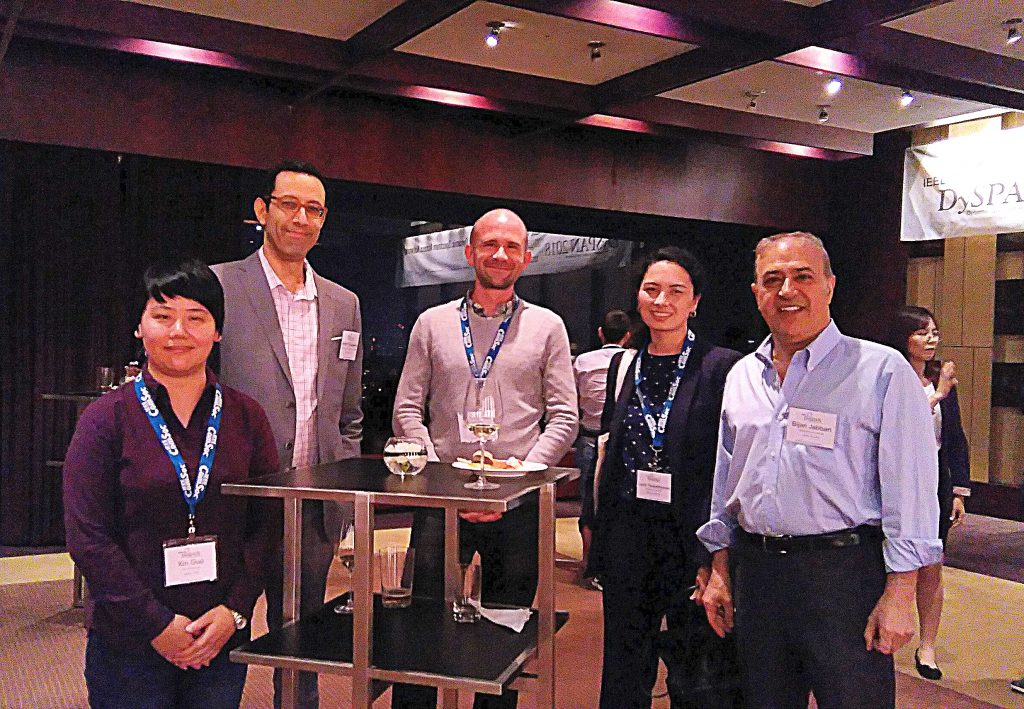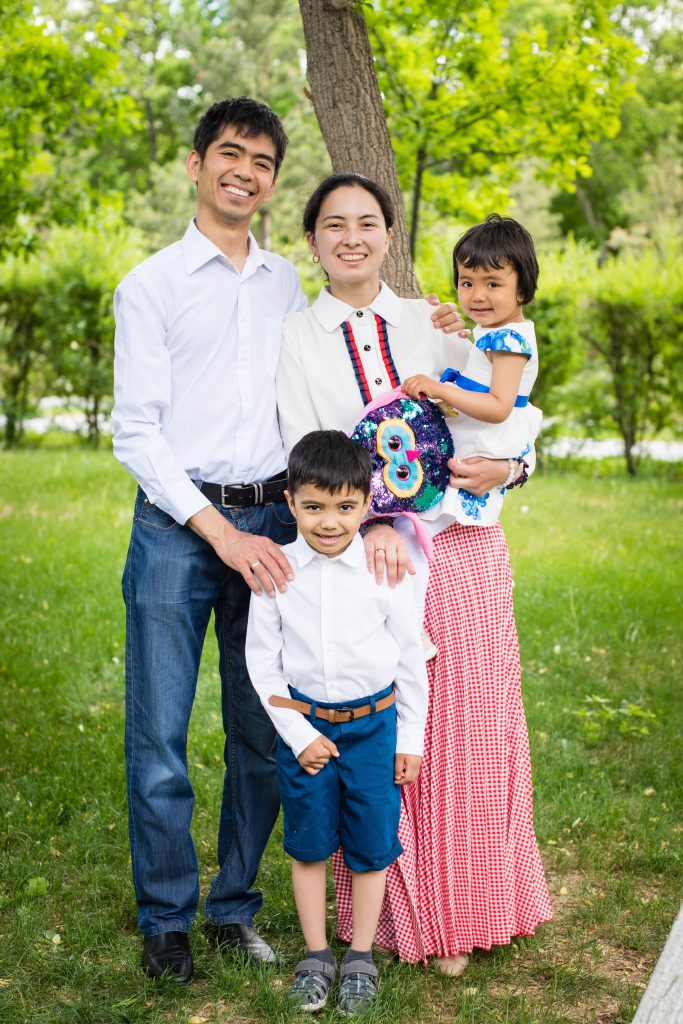Developing 5G – Applications from a NU PhD student’s research
Our next guest is Leila Tlebaldiyeva, who completed her doctoral studies in Science, Engineering and Technology at the Nazarbayev University School of Engineering and Digital Sciences. She successfully defended her doctoral thesis in April this year. Today, under the guidance of Professor Galymzhan Nauryzbayev, Leila works at Nazarbayev University on modeling non-orthogonal communication between multiple access devices in the presence of system disruptions.
What engineering task was your work devoted to? 
My PhD thesis is about modeling and analyzing performance of practical future communication technologies such as spectrum sensing/sharing Cognitive Radio and millimeter wave communication by considering system impairments such as transceiver distortion noise, interference noise, and imperfect channel state information.
Cognitive radio and millimeter wave (mmWave) communication are two potential technologies to meet ever-increasing consumer data demand. Cognitive Radio improves spectrum utilization and millimeter wave communication offers enormous bandwidth at millimeter wave frequency range.
In other words, our study is designed to help operators of 5G networks model and assess the likelihood of failure and capacity performance in the event of system failure.
Our study’s results are useful for the development of a country’s telecommunications industry, which in turn will open up access to the creation of many new applications that were unavailable to previous generations. Possible applications of 5G technologies are in stand-alone trains, unmanned vehicles and aircraft, remote operations, as well as when creating a global network of Internet-connected physical devices or “things” equipped with sensors, sensors and information transfer devices. I am now continuing to work in the wireless research group and plan to continue working in this direction.
What can you tell us about your thesis process?
I had a memorable Ph.D. journey at our university. My supervisors Professor Behrouz Maham and Professor Theodoros Tsiftsis are not only well-established researchers in the field of wireless communications but also excellent supervisors and mentors. I learned fundamental research methods and skills from my supervisors. I am very thankful to them for sharing their knowledge and dedicating their valuable time to my training.
I would like to thank our Director of Ph.D. studies Professor Luis Rojas-Solórzano for his sincere dedication and support for each Ph.D. student. Every week he conducted a Ph.D. seminar including coffee breaks. Students joked that the coffee break was their favorite part of the seminar since it gave a chance to snack and communicate with one another. I enjoyed listening to guest speakers during the Ph.D. seminar series. We often heard from Professors of our university who were invited to share their unique experiences and stories.
In general, during the years of my studies at NU, I made new friends and professional connections, attended the most interesting seminars and talks, celebrated New Year and Nauryz with the NU community. All of these bright memories will not ever fade. Thank you Nazarbayev University.
As you know, engineering is not a traditional speciality for Kazakhstan’s women. What influenced you to choose this field? When did your interest in this field begin?
Even though I studied humanities at school and competed for three years at regional Olympiads in history, I always loved the exact sciences, namely mathematics and chemistry. These subjects fascinated me. In addition, my father is a mechanical engineer, and as a child, I loved spending time in his studio.
In 11th grade, like many students soon to graduate, I was confused by the choice of profession. One of my relatives advised me to choose an engineering specialty. He had been working as an engineer in an international oil company and thought that engineers would be in high demand and the field would offer good future prospects in the job market. Thus, I became a student of “Computer Engineering and Software” faculty of Suleyman Demirel University. That was the start of my academic career in engineering.
How did you manage to co mbine your research activities with motherhood and family responsibilities?
mbine your research activities with motherhood and family responsibilities?
Yes, it was not easy. Without my family support, I would hardly be able to successfully complete my studies and defend my thesis. My family members were an important asset during my education, especially, I would like to highlight the enormous help of my mother-in-law Bakhyt Tasanovna for looking after my young children. When I started the program my son Alimzhan was only two years old and my daughter Rayana was born at the end of the second academic year.
“Nothing is impossible for someone who tries,” Alexander the Great once said. I figured it out from my own experience, and now I know that only our consciousness considers something impossible. All roads are open for a person who really wants to achieve something in life.
What can you recommend to future doctoral candidates?
One of the important and defining decisions for future doctoral candidates is the choice of a research supervisor and the subject of study. First, I advise candidates to read the publications of several potential supervisors. For each one, consider whether such work would be an interesting area of research for you. If you imagine your future, could you “see yourself” doing similar work in the field and being happy?
Another important point is that all doctoral students have moments of depression and despondency, when some tasks are not accomplished for a long time, when there are no results of the experiments, and for some reason, articles are not published. The most important thing is to not stop and continue to work hard. If you work hard, the rewards are there, and you will not only succeed but will better understand the field of your research.
I urge you to remember the advice that the great Abay once gave to Kazakh people: “while studying science, set clear and noble goals, do not seek to acquire knowledge in order to be able to argue with others. In reasonable limits, disputes help to find a firmness in convictions, but an excessive passion for them only spoil the man”.
Yes, research activity, although at times difficult, is a noble way. And I wish success to all future doctoral candidates and all who have decided to choose studying science for themselves!
And of course, we, who have successfully completed this path, will always be happy to help, give advice and share our experiences.

